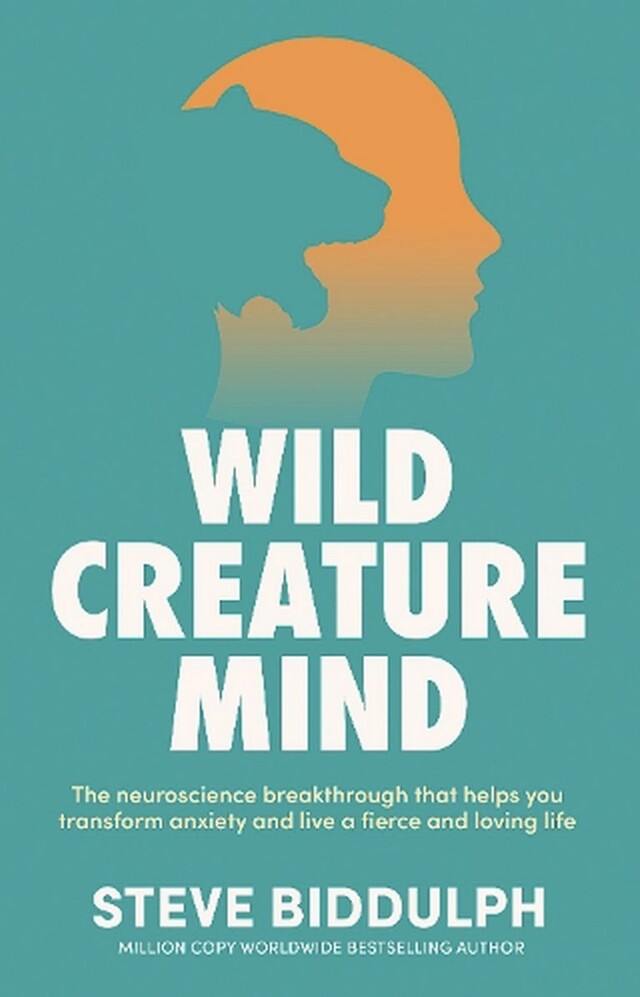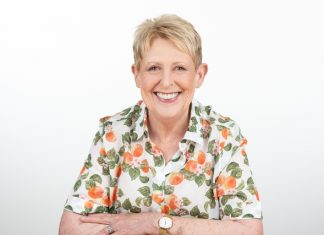PRECEDE: Steve Biddulph explains how our wild animal side helps us feel calm and strong.
This month I am travelling to China at the invitation of my Chinese publishers.
I am very happy to go because, just as there are in Australia, there are huge anxiety problems happening with children and something has to be done to save these kids.
Anxiety is a horrible and upsetting thing.
I have had it myself and many readers will have too.
Since my new book came out I have had hundreds of conversations with people – in airports, on trains, in taxis, or online – and everybody knows someone whose life has been affected.
In the world we live in today, it is hardly surprising that children, teens, and adults feel anxious; there are so many real dangers, from the coming effects of the climate emergency to the meanness of people towards each other in politics, on the news, and on social media.
As parents, we are waking up to not having the TV news blasting in our living rooms, and not letting kids have social media or internet in their lives until well into their teen years.
Something we might also have to address is how to lower our own anxiety levels, since children are very sensitive to how we are faring.
In short, if we are anxious, they will know it and this will make them uneasy too.
So here is a simple strategy to use, from my new book Wild Creature Mind, to lower your own anxiety so it doesn’t affect your kids.
The neuroscience behind this is described in the book, but here in a short column, I want to give you a tool to get started.
Think first of how we tend to describe our mental state in everyday language.
We nearly always say ‘I AM anxious’ or ‘I AM angry’ and so on.
When we say it this way, it sounds, and feels, very total. Like every cell of my being is affected.
But here is something to try.
Instead of ‘I AM’, try saying ‘SOMETHING IN ME is anxious’ (or angry, or whatever it is).
Notice that as soon as you say it this way, there is a kind of space around the feeling; that it’s there in you but is not ALL of you.
This wording is actually more objectively true, since mental states like anxiety are actually located somewhere in your body.
If you then direct your attention to WHERE you feel anxious, a very interesting thing happens.
It will start off quite hazy but within seconds you will notice ‘It’s in my tummy’ or ‘My heart feels tight’, or ‘It’s in my throat’.
Everyone feels it slightly differently, and it moves about too.
Something very interesting is going on as your body is trying to get your attention.
A part of you is where the bad feeling lives, and you can send it a message of kindness and give it some room.
It is trying to tell you something. And you are starting to listen.
So now we go to the next step.
Now, the mental hack that therapists are finding quite amazing is to try and put words to the sensation you have noticed.
Is it tight or churning or thumping or hard? A friend of mine who had just suffered a very major grief experience described his heart feeling like a stone.
As you describe in words the sensation, an amazing thing starts to happen.
The ‘wild creature’ part of you which has been ignored up until now starts to soften and move, and the anxiety begins to dissolve.
If you are in a safe place – your home or in bed – then your body will automatically soften and begin to relax.
If you are in an unsafe place, then it will actually begin to mobilise so you can fight or flee, but either way you will have broken the frozen anxiety state and know what you need to do.
My book Wild Creature Mind starts with a teenage girl called Ellie who is blitzed with anxiety, found by her mum sobbing on the bathroom floor in the middle of the night.
With the right help, contacting her wild animal wisdom, Ellie discovers she is really furiously angry at the boys who have been sexually harassing her and her friends at the bus stop, and she and her friends take action to get the school to deal with them.
Her anxiety was frozen anger and she was able to set it free.
My friend who had the stone in his heart paid close attention to it and felt it move to his throat, and then pour out of him in tears of release.
His anxiety was frozen sorrow and it was so healing to let it go.
Our bodies are very wise and capable.
For now, just try out this ‘hack’ yourself. Next time you feel bad, say ‘something in me is…’ anxious, or depressed, or angry, or sad, and go and find where inside you it lives.
Describe it to yourself, feel it start to change, and see where it goes.
Soon you will find anxiety lessens in your life and, despite the awfulness of the world, you will be a safe harbour for your children and a fierce panther or tiger when you have to be.
Steve Biddulph is a retired psychologist who campaigns for a better life for parents and kids. For climate action. And for solving the worldwide epidemic of anxiety.
His book Wild Creature Mind is out now in shops, online, and in audiobook.







